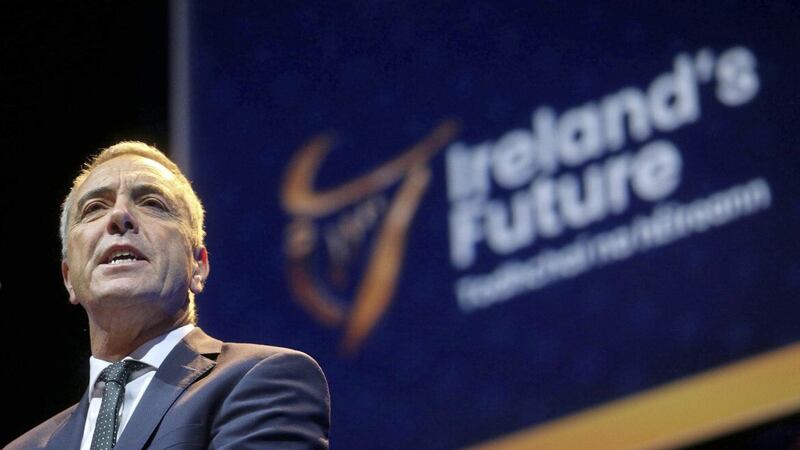The Union of Ireland debate, as Jimmy Nesbitt calls it, has begun.
It has entered the entrails of political interest. There is no stopping it now. The only thing that can be tampered with is the quality and the tone of the debate itself.
Political unionism says there won’t be a debate because it takes at least two to debate and they have no intention of participating. A one-handed clap and oratory in an empty room is the imagery for what they claim is happening. But non- participation does not stop the debate - it may delay it; it may denigrate its quality and its efficacy, but it does not kill it. Unionism laments that their heart attachment to the UK union is not acknowledged nor understood and why would they accept an invitation to discuss their own funeral obsequies?
Nationalism believes, indeed has grown very weary, that political unionism has had to be dragged into every constructive compromise over the last 25 years or longer. The Union of Ireland is the biggest and the most radical compromise that either ideology has yet or ever will face and therefore inevitable that the cut and thrust of the debate will be the more severe.
Most debates lend themselves to flights of oratory (Mary Lou on the wonder of Irish youth at the Ireland’s Future event is an early example) but quality debate demands a substantive outlining of figures, facts and ideas.
There was the beginning of such material in the future’s debate, putting on the table some of the compromises that will be essential in allowing both Anglo and Irish identities find a shared identity. There was also the recognition that this is a political enterprise that will require quality political input and organisation. The Shared Island project of the Irish government is worthy if somewhat safe and academic. But that academic work must increase and tackle the hard subjects if it is to accompany and inform the debate itself and the future political discussions.
Sinn Fein’s proposal of a Citizens’ Forum is populist and inappropriate. Such forums are for nuanced issues in a settled political country, not a mechanism for deciding the nature of the polity itself.
But ultimately the debate must evolve into negotiations. And one of the groups who can act as the bridge from debate into safe and managed negotiation is the Alliance Party. Currently, they describe themselves as agnostic on the issue. It is a word usually associated with the dilemma of deciding on the existence of God. That existence cannot be proven but the hundred years of continuing tension arising from the clash of Anglo/Irish relationships on the island of Ireland is proven daily.
It is neither admirable nor moral to sit outside of a debate that is omnipresent and omnipotent to those of us who have been both blessed and cursed to be born in this part of the world. Detachment by institutions and people who were not immediately or directly affected by the Troubles is one of the reasons why the violence and the conflict lasted so long. That detachment is selfish and self-protective. There are many grey areas within our politics but the need to debate and then negotiate our future is not one of them. Wishing for equanimity while this primary historical issue remains unaddressed is pie in the sky.
Put simply and crudely, there is not a snowball's chance in hell that the middle, non-aligned ground will become 50-plus one per cent of the population in the next hundred years. The reality of others morphing into minorities and majorities and the need to discuss and prepare for such change is staring us in the face.
Alliance is clever enough to agree to or better still to help devise such a negotiating format without breaking its own back. It is the right, the moral and the proper political thing to do.









